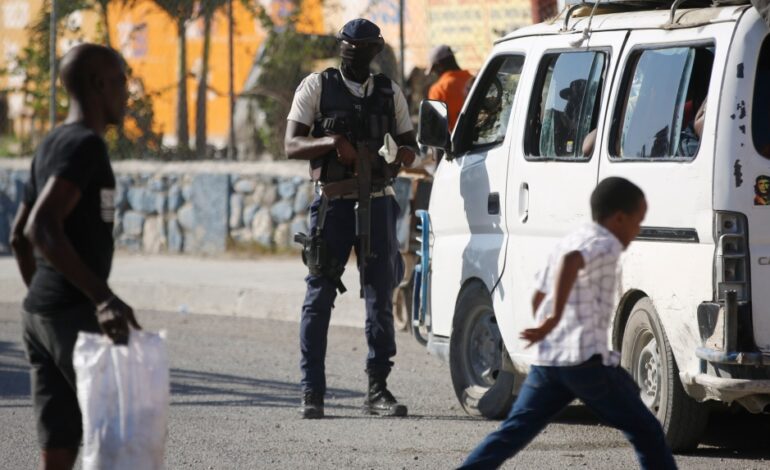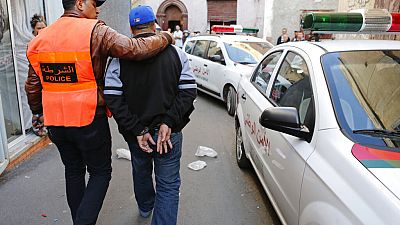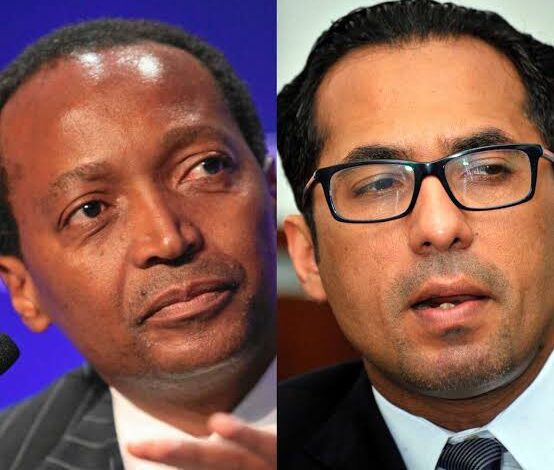
Faith Nyasuguta
In the final quarter of last year, Haiti experienced a devastating surge in violence and instability, with more than 2,300 people killed, injured, or kidnapped, marking a nearly 10% increase compared to the preceding quarter, according to a recently released United Nations (U.N.) report.
The alarming statistics reveal a deepening humanitarian crisis, primarily fueled by internal conflicts within powerful gangs, territorial fights, and the vacuum created by the death of Andrice Isca, a prominent gang leader known by various aliases such as Iskar Andrice and Iscar Andris.
The period witnessed an unprecedented rise in killings, surpassing 1,600, as territorial clashes erupted in the Cite Soleil slum of Port-au-Prince. The death of Andrice Isca played a pivotal role in unleashing these violent confrontations, mainly within the G-9 Family and Allies gang federation.
The clashes extended to target an opposition gang coalition called G-Pep, resulting in significant casualties and forcing over 1,000 individuals to abandon their homes, seeking refuge in nearby areas.
The report emphasizes the disastrous humanitarian toll, shedding light on the complexity of the situation in Haiti. Notably, the ease of recruiting individuals from impoverished populations controlled by the gangs enabled them to rapidly replenish their ranks despite significant losses in the last quarter.
The death toll also included at least 262 gang members, a stark reminder of the ruthless dynamics governing these criminal factions.
Kidnappings, another harrowing aspect of the crisis, surged to nearly 700 cases from October to December, indicating a distressing 20% increase compared to the preceding quarter.
The victims spanned diverse social categories, from street vendors and farmers to high-level professionals, including doctors and civil servants.
The report paints a grim picture of the deteriorating security landscape, where gangs not only resort to abductions for financial gain but also engage in heinous acts such as rape, often recording and sharing the videos on social media to further humiliate their victims.
Children, tragically, continue to be prime targets for gangs, with more than 50 killed in the last quarter alone. One heart-wrenching incident involved the execution of a 10-year-old who was accused of being a police informant by members of the Grand Ravine gang.
The overall impact of gang violence on Haiti’s population is staggering, with over 310,000 people rendered homeless, including around 170,000 children, according to UNICEF.
The cumulative toll for the entire year 2023 exceeded 8,400 people killed, injured, or kidnapped – more than double the reported figures for 2022. These numbers underscore the urgent need for effective interventions to address the deepening crisis in Haiti.
The U.N. Integrated Office in Haiti (BINUH) has recommended the accelerated deployment of a foreign armed force to restore stability. However, challenges, including legal impediments and delays, pose obstacles to the swift implementation of such measures.

A recent court ruling in Kenya, for example, deemed the U.N.-backed deployment of police officers to Haiti unconstitutional, illustrating the complexities involved in coordinating international efforts to address the crisis.
The report serves as a clarion call for immediate and coordinated action from the international community to alleviate the suffering of the Haitian people and restore stability in a nation grappling with escalating violence and humanitarian challenges.
RELATED:




